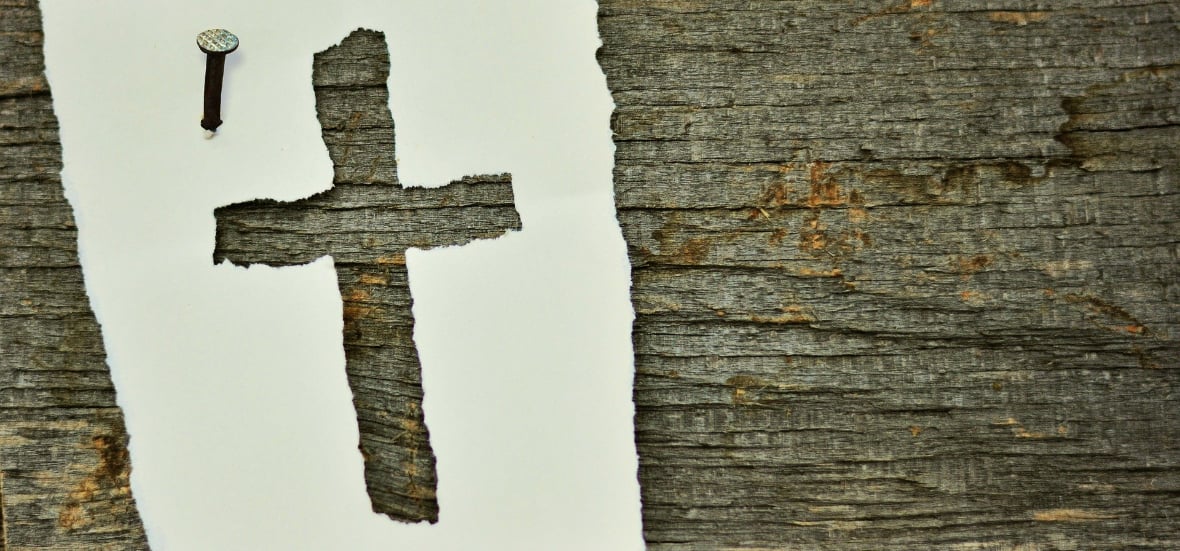
To keep hope alive during these weeks of crisis, Kate Towne focused on stories of others going through difficult times.
The CatholicMom Chaplain and National Director of Family Rosary, Fr. Jim Phalan, C.S.C., has encouraged us to write about hope — specifically, what we might have learned about hope during these past few months of pandemic quarantine. In His ever good and loving way, God brought to my attention stories of others going through difficult times, with the reminder that they don’t last forever, which turned out to be exactly what I needed to keep my hope fires burning.
When my state’s stay-at-home orders were issued, I hunkered down with my husband and our children and for a solid twelve weeks didn’t interact with anyone else in person other than the grocery-store cashier during my once-a-week shop, and occasionally my parents through the rolled-down window of my van when I parked in front of their house. During those days of near-total lockdown, I had these crying jags that would come out of nowhere, especially in the first few weeks, often after a couple of days of good mood and cheerful optimism. They would cripple me for hours or even a day or two.
It was all so terrifying, this feeling that death was hanging over both our whole world and this very house and those of my family and friends. One of the worst parts was not knowing when it would end — a fact which my schedule-dependent, control-freak personality turned into a thing of panic. Some days I felt like I would lose my mind over it.
I know that so many of you have felt similarly! And I know we’ve all had our ways of coping. During hard times, I like to have something to look forward to, and one of my favorite things is reading. So I have finished each day for all these months by reading for a half hour or so to my older boys from a book about our faith (something I really did look forward to each day, geeky as that sounds!). One of the books I read to them was The Creed in Slow Motion by Fr. Ronald Knox, which is where my first gift of hope was given.
The Creed in Slow Motion is a series of homilies Fr. Knox gave to the students of an all-girls school over a number of weeks in which he dissected and discussed the Apostle’s Creed. The hopeful thing, for me, wasn’t the content (wonderful as it was), but that these homilies occurred during World War II — the girls had been evacuated from London to the countryside for their safety, to the very place where Fr. Knox had holed up to work on a new translation of the Vulgate Bible requested by his bishop. The words I was reading were written during a time a bit like the one we’ve been living through — a time of fear, isolation, and removal from “regular life.” A time that came to an end, and was followed by a return to “normalcy” (in their case, I mean a return to non-war living).
The next book I read to the boys was the story of Scott and Kimberly Hahn’s conversion, Rome Sweet Home. This, too, provided the assurance of difficult times ending and better times to come: the pain and suffering Scott and Kimberly endured while they journeyed to the Church, and especially that which happened in the years between when Scott converted and when Kimberly finally joined him, were gut wrenching. I could feel each stab of grief, each feeling of betrayal, each temptation to despair as I read it, and I thought, Years. This went on for years. We’ve been in the shadow of this pandemic for mere weeks. Reading about their dark years and subsequent Easter Sunday, and knowing that we’re currently many years removed from those events, that their babies in the book are now grown-up adults, that the Hahns are now grandparents several times over — was a soothing reminder that hard times don’t last forever.
A third bit of hope came in a more unlikely source. I’d been researching a psychologist named Mihaly Czikszentmihalyi, whose focus is on the psychology of happiness, and whom I remembered learning about in school. Specifically, I was interested in learning more about his notion of flow — that feeling of being “in the zone” when working on something — and how to tap into it, which is something that I’ve often had in mind as I’ve woven my work as a writer in and around my motherhood. But in looking for more information on flow, I found more information about Dr. Csikszentmihalyi himself, and was amazed to discover that he’d lived through some unimaginable things, like having to flee Budapest with his family as a child because the Russian soldiers were coming (the bridge over the Danube blew up right after his train crossed it), and living in a refugee camp with his family.
I’d also been worried about my older boys and children of friends who are on the cusp of adulthood (late high school, college, and new college grads), and how Covid-19 would interfere with their plans, but Dr. C.’s plans had been interrupted — he didn’t even start college until he was 22, and he went on to have a fruitful life from a personal and professional perspective. Reading about this successful man living through things much worse than I’ve had to, and for much longer, has given me the kind of perspective that has helped quell the terror and reverse the hopelessness I have often felt seeking to ensnare me.
In all these examples, there were literal years of hardship and suffering — a much longer time than what I’ve yet even come close to dealing with coronavirus-wise. In all these examples, the bad times ended and good times came again. In all these examples, those particular crosses became, at some point, only a memory. This, too, shall pass.
During hard times, seek reminders that hard times don't last forever. #catholicmom
Copyright 2020 Kate Towne
Image: Pixabay (2018)
This article contains Amazon affiliate links; your purchases through these links benefit the author.
About the Author

Kate Towne
Kate is a writer, wife to a really good man, and mama to their seven boys ages 1 to 15. She shares her thoughts on Catholic baby naming at Sancta Nomina, and her first book, Catholic Baby Names for Girls and Boys: Over 250 Ways to Honor Our Lady (Marian Press, 2018) can be found at ShopMercy.org and Amazon.


.png?width=1806&height=731&name=CatholicMom_hcfm_logo1_pos_871c_2728c%20(002).png)
Comments